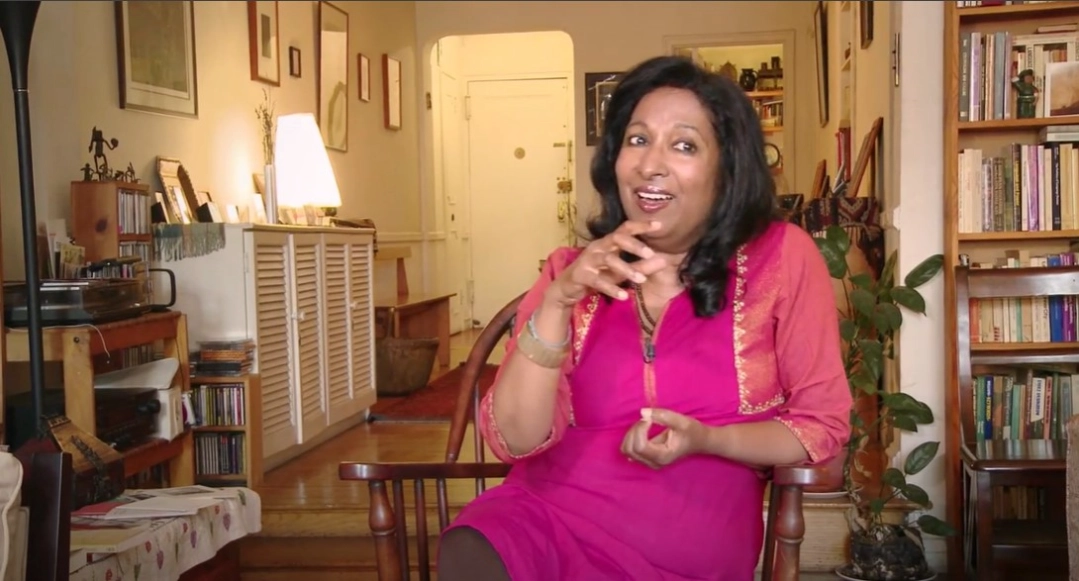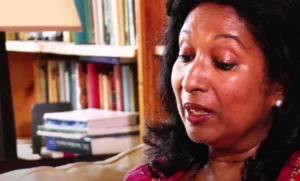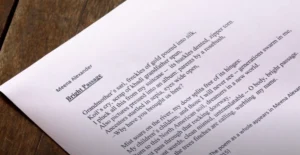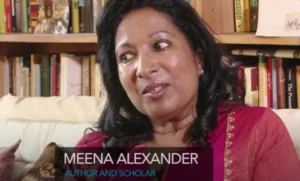Meena Alexander: A Journey Through Poetry and Identity
Exploring the Life and Legacy of Meena Alexander: A Multifaceted Poet
 Meena Alexander (1951-2018) was a prominent Indian poet, essayist, novelist, and scholar whose work transcended geographical borders and cultural boundaries. Born in Allahabad, India, she spent her formative years in Kerala and Sudan before moving to the United States. Her life was marked by multiple migrations, which deeply influenced her literary voice and thematic concerns. This article delves into her life, works, and the impact she made on contemporary literature.
Meena Alexander (1951-2018) was a prominent Indian poet, essayist, novelist, and scholar whose work transcended geographical borders and cultural boundaries. Born in Allahabad, India, she spent her formative years in Kerala and Sudan before moving to the United States. Her life was marked by multiple migrations, which deeply influenced her literary voice and thematic concerns. This article delves into her life, works, and the impact she made on contemporary literature.
Early Life and Education
 Meena Alexander was born on February 17, 1951, into a Syrian Christian family in Allahabad. Her father worked as a meteorologist for the Indian government, which led the family to Sudan when she was a child. It was in Khartoum that Alexander began writing poetry at a young age. She attended Khartoum University, where she earned her bachelor’s degree before pursuing a PhD at Nottingham University in England. Her diverse educational background laid the foundation for her rich literary career.
Meena Alexander was born on February 17, 1951, into a Syrian Christian family in Allahabad. Her father worked as a meteorologist for the Indian government, which led the family to Sudan when she was a child. It was in Khartoum that Alexander began writing poetry at a young age. She attended Khartoum University, where she earned her bachelor’s degree before pursuing a PhD at Nottingham University in England. Her diverse educational background laid the foundation for her rich literary career.
Literary Contributions
Alexander’s oeuvre is extensive and varied, encompassing poetry, essays, novels, and memoirs. Some of her notable poetry collections include:
- Illiterate Heart (2002): This collection won the PEN Open Book Award and explores themes of exile and identity.
- Atmospheric Embroidery (2018): A posthumously published collection that reflects her lifelong engagement with language and memory.
- Birthplace with Buried Stones (2013): This work delves into personal and collective histories through the lens of migration.
In addition to poetry, Alexander authored several novels including Nampally Road (1991) and Manhattan Music (1997). Her memoir Fault Lines (1993) provides insight into her personal experiences with trauma and identity.
Themes in Alexander’s Work
 Meena Alexander’s writings often grapple with complex themes such as:
Meena Alexander’s writings often grapple with complex themes such as:
- Migration and Exile: Her own experiences of displacement are mirrored in her poetry, where she articulates the feelings of being uprooted from one’s homeland.
- Cultural Hybridity: Living across different cultures allowed Alexander to explore the intersections of identity, gender, and race in her work.
- Trauma and Memory: Many of her poems reflect on bodily trauma and memory, often drawing from personal experiences as well as broader societal issues.
Alexander’s ability to weave personal narratives with universal themes has made her work resonate with readers around the world. Her poetry is characterized by its lyrical quality and emotional depth, often challenging conventional notions of identity and belonging.
Recognition and Awards
 Throughout her career, Meena Alexander received numerous accolades for her contributions to literature:
Throughout her career, Meena Alexander received numerous accolades for her contributions to literature:
- The Distinguished Achievement Award in Literature from the South Asian Literary Association in 2009.
- Fellowships from prestigious organizations such as the John Simon Guggenheim Memorial Foundation and the Fulbright Foundation.
- In 2016, she served as the Poet in Residence in Venice during the 500th anniversary of the Ghetto Nuovo.
Her work has been translated into multiple languages, further amplifying her voice on global literary platforms.
Teaching Career
In addition to her writing, Meena Alexander was a dedicated educator. She held teaching positions at various institutions including:
- Hunter College and the Graduate Center of CUNY, where she served as a Distinguished Professor of English.
- Columbia University, where she taught creative writing.
Her commitment to education extended beyond traditional classroom settings; she often engaged with students through workshops and public readings, fostering a love for poetry among younger generations.
Legacy
 Meena Alexander’s death on November 21, 2018, left a significant void in the literary community. However, her legacy continues through her impactful works that challenge readers to confront their own identities and experiences. Scholars have begun to critically analyze her contributions to postcolonial literature, recognizing her unique voice amid a predominantly male-dominated field.
Meena Alexander’s death on November 21, 2018, left a significant void in the literary community. However, her legacy continues through her impactful works that challenge readers to confront their own identities and experiences. Scholars have begun to critically analyze her contributions to postcolonial literature, recognizing her unique voice amid a predominantly male-dominated field.
Her influence can be seen not only in contemporary poetry but also in discussions surrounding migration and identity politics. As an advocate for gender equality and cultural understanding, Alexander’s work remains relevant today.
Conclusion
Meena Alexander’s life story is one of resilience and creativity. Her ability to articulate complex emotions surrounding migration, identity, and trauma has solidified her place as one of the most significant poets of our time.
As we continue to explore her works—from poignant poetry collections to insightful essays—we honour her legacy by recognizing the power of words to bridge divides across cultures. For those interested in exploring Meena Alexander’s literary contributions further or seeking inspiration from her profound insights on life’s complexities, you can find some of her notable works available here.
